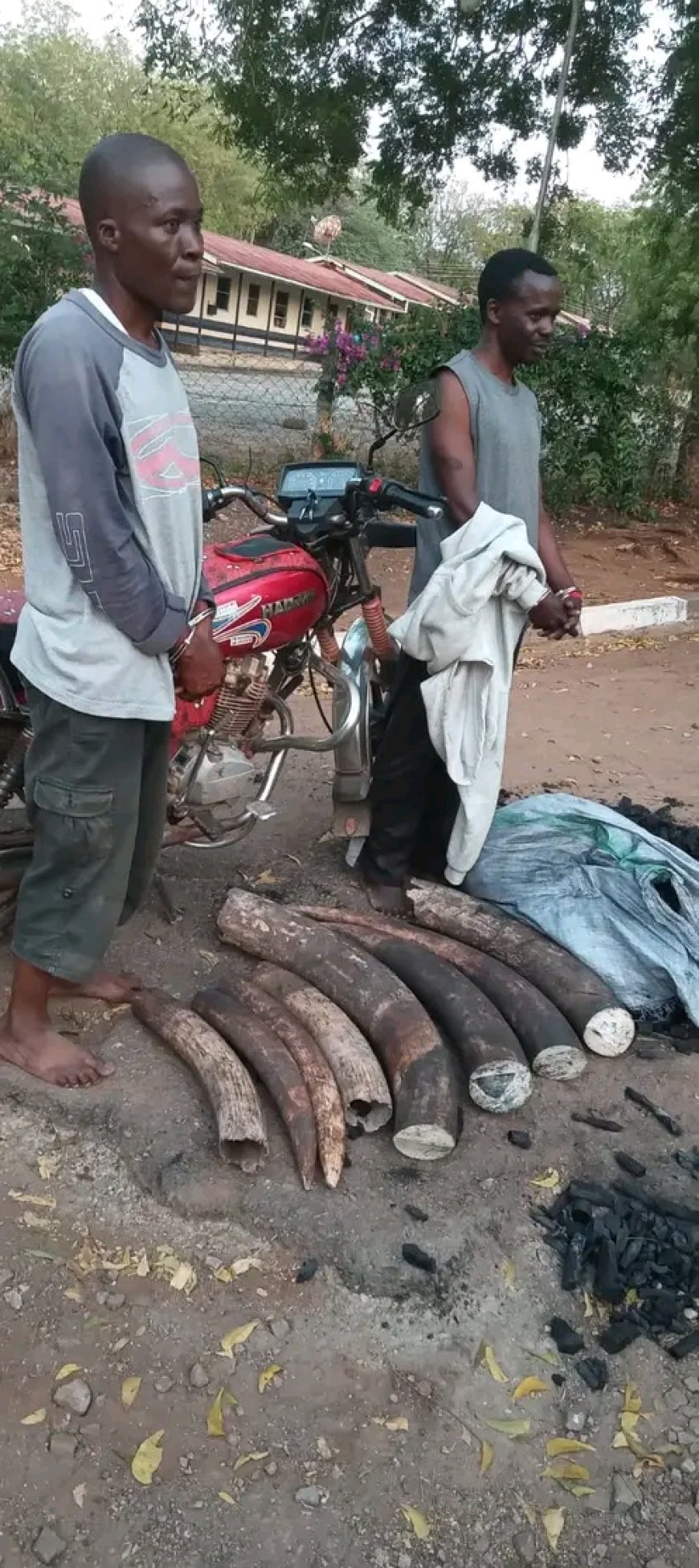Two arrested in Possession of Elephant tusks worth Ksh.5.8 Million

Lunga Lunga,
Friday, 18 October, 2024
McCreadie Andias
Two suspects have on Friday, been arrested in possession and trafficking of elephant tusks worth sh.5. 8million.
The two, Ali Salim, 32 and a pillion passenger Jackson Kitsao, 53, were intercepted by officers from Lunga Lunga Police Station, who upon searching their Motorcycle, recovered eight pieces of elephant tusks weighing 58 kgs hidden inside a sack of charcoal.
The joint operation by NPS and KWS officers was aided by a tip-off on illegal trafficking of Ivory on a red Haojin motorcycle, registration number KMFB 681C.
The accused, were swiftly escorted to Lunga Lunga Police Station for processing, pending arraignment.
They will be charged with possessing and trafficking elephant tusks, classified as an endangered species needing special protection, without a permit from the Kenya Wildlife Service (KWS).
If found guilty, the two risk heaving penalties and lengthy jail terms thanks to the overhauled Kenya Wildlife Conservation Act of 2013 which stimulates a maximum fine of Sh. 20 million or life imprisonment for perpetrators.
The Act classifies the African Elephant as an endangered species due to poaching which threatened its existence with Kenya having led the ban on game hunting to contain the vice.
According to data from (KWS), although the country has strengthened its anti-poaching laws to curb the menace, some unscrupulous traders have continued to target these endangered species for tusks and game meat.
KWS has committed to strengthening surveillance systems in wildfire reserves to unearth the web of criminals that risks diminishing the numerous gains in the fight against poaching and trafficking of wildlife trophies that have won the country accolades.
KWS statistics also show that in the 1970s to early 80s, Kenya’s elephant population was estimated at 170,000 individuals which sharply declined to 16,000 elephants by the end of 1989 due to worldwide demand for ivory.
Thanks to the government’s continued interventions through legal and policy measures, the declining trend has been reversed resulting in the national elephant population increasing by more than five per cent to the current population of 36,000 by August last year.
To steer clear in the war on poaching, former President Uhuru Kenyatta in 2016 led the setting ablaze of more than 100 tons of ivory and rhino horns that had been apprehended from poachers in various parts of the country in Nairobi National Park.
What's Your Reaction?
































































































































































































































































































